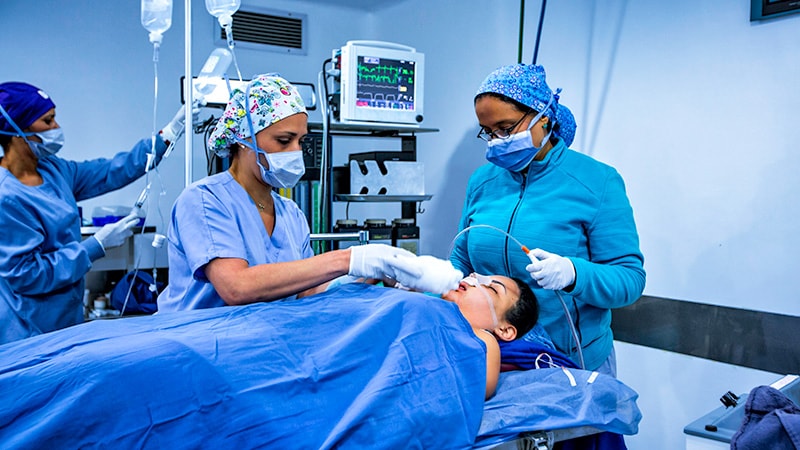Fitness
Semaglutide Safe for Diabetics Before Surgery: Study

TOPLINE:
Semaglutide does not appear to increase the risk for postoperative pneumonia in diabetic patients undergoing elective surgery, a new study found.
METHODOLOGY:
- Researchers conducted a retrospective cohort study using linked administrative databases from Ontario, Canada.
- The study included patients with type 2 diabetes aged ≥ 66 years who underwent elective surgery with general or spinal anesthesia between February 2020 and March 2023.
- A total of 48,597 patients were analyzed, with 3843 (7.9%) prescribed semaglutide preoperatively.
- Propensity score matching was used to compare patients taking semaglutide and those not on the drug, focusing on pneumonia within 14 days of surgery as the primary outcome. The researchers also looked at a subset of patients undergoing surgery with general anesthesia.
TAKEAWAY:
- The researchers found no significant difference in the risk for postoperative pneumonia between users of semaglutide and those who did not use the medication (odds ratio, 0.71; 95% CI, 0.36-1.41).
- Secondary outcomes, including aspiration pneumonia, bronchoscopy within 14 days of operation, and 30-day all-cause mortality, also showed no statistically significant differences.
IN PRACTICE:
The findings and those from other studies “suggest that the risk of clinically significant postoperative aspiration may not be elevated in diabetic patients using GLP-1 RAs [glucagon-like peptide 1 receptor agonists]. However, there may be a risk in certain groups, such as those using higher doses of GLP-1 RAs, those that recently started the medication, those with abdominal symptoms, and during certain procedures [such as upper endoscopy],” the researchers wrote.
SOURCE:
The study was led by Blayne Welk, MD, of the Department of Surgery at Western University, in London, Ontario, Canada. It was published online on June 11, 2024, in Diabetes, Obesity and Metabolism.
LIMITATIONS:
Specific details on patient’s glucose control and intraoperative management were not available, potentially affecting the outcomes. The generalizability of the findings may be limited to patients similar to those in the study population.
DISCLOSURES:
Welk has been a consultant for Becton, Dickinson and Company. Another coauthor received funding from the CPD Network for delivering certified medical education. No other conflicts of interest were reported.
This article was created using several editorial tools, including AI, as part of the process. Human editors reviewed this content before publication.










